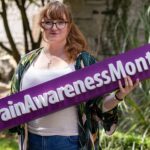Shingles Winter 2016 Press Release:
Press Release: New Irish research shows lack of shingles knowledge among older adults
· Only 20% of adults in Ireland over 50 are well informed on shingles[1]
· 20% of adults in Ireland over 50 have developed shingles 1
Dublin, November 2016 – Despite all Irish adults over the age of 50 having heard of shingles, a startling two-thirds know little about the disease1, according to new research supported by Sanofi Pasteur MSD, Age Action Ireland and Chronic Pain Ireland. The results of the research were launched this week by radio and TV personality Marty Whelan, in an attempt to help educate the public as part of the Healthy Ageing campaign.
The research showed that females over 50 have better knowledge of the disease than their male counterparts, with 25% knowing a lot about shingles compared to just 15% of men1. There is overall confusion however on the link between shingles and chickenpox with half (50%) believing that shingles and chickenpox are the same illness1, while just over 2 in 5 (41%) are aware that a person who has not had chickenpox can catch it from someone who has shingles1.
One in five adults over 50 who participated in the survey, confirmed having had shingles before, with 2% unsure1. There is a higher incidence of shingles cases among those aged over 651.
At the launch of the Healthy Ageing campaign today, Marty Whelan said; “As we get older, it’s important to take greater care of yourself, and I don’t just mean cutting out the treat after dinner! Shingles can be a very painful disease, which can be very uncomfortable for the sufferer, and have a negative impact on their quality of life for its duration. It’s important to raise awareness so that everyone over the age of 50 is educated on the symptoms, treatment and prevention of shingles.”
372 people aged 50 years and over took part in this research. Of these, 28% were from Dublin, 26% from the rest of Leinster, 28% from Munster, and 18% from Connacht and Ulster1.
Mr John Lindsay, chairman of Chronic Pain Ireland said; “We urge people to talk to their healthcare professional if they would like further information on the management or prevention of the disease. Shingles can be very uncomfortable for the sufferer, and can also lead to a condition known as post-herpetic neuralgia (PHN), which is an extremely painful condition and difficult to treat.”
Mr Justin Moran, Head of Advocacy and Communications at Age Action Ireland, said; “As we get older, we are at increased risk of developing shingles. We encourage people to be vigilant for the symptoms of this very painful and debilitating illness.”
-Ends-
For further information please contact
Sharon Plunkett/Alan Keane
Plunkett PR
01 280 7873 / 087 826 0833/ 083 184 1657
Or
Lisa Mc Laughlin
Senior Manager, Marketing
Sanofi Pasteur MSD
01 4685600
086 852 0328
Notes to editor:
· This research was carried out by Empathy Research among 372 Irish adults aged over 50 during September 2016 throughout Ireland
· Shingles is a viral disease affecting nerves and surrounding skin
· It’s caused by the reactivation of the same virus that causes chickenpox
· If you have had chickenpox, the virus can reactivate later in life and cause shingles
· There is a 1 in 4 chance you could develop shingles at some point in your lifetime
· 95% of adults have had chickenpox (according to research undertaken in September 2015). If you’ve ever had chickenpox, you could be at risk of developing shingles
· The long-term nerve pain that some people experience after the shingles rash has healed is known as post-herpetic neuralgia (PHN). PHN is the most frequent complication of shingles. This can be a severe, unpleasant, long-term nerve pain that is often described as burning, stabbing or throbbing. This can last weeks, months or for a few people, even years.
References:
1. Sanofi Pasteur MSD, Data on File 10/16 IR00299, 2016
2. Johnson RW, Wasner G, Saddier P et al. Post-herpetic Neuralgia: epidemiology, pathology and management. Expert Rev Neurother 2007; 7: 1581-95
3. Miller E, Marshall R and Vurdien J (1993) Epidemiology, outcome and control of varicella-zoster infection. Rev Med.















